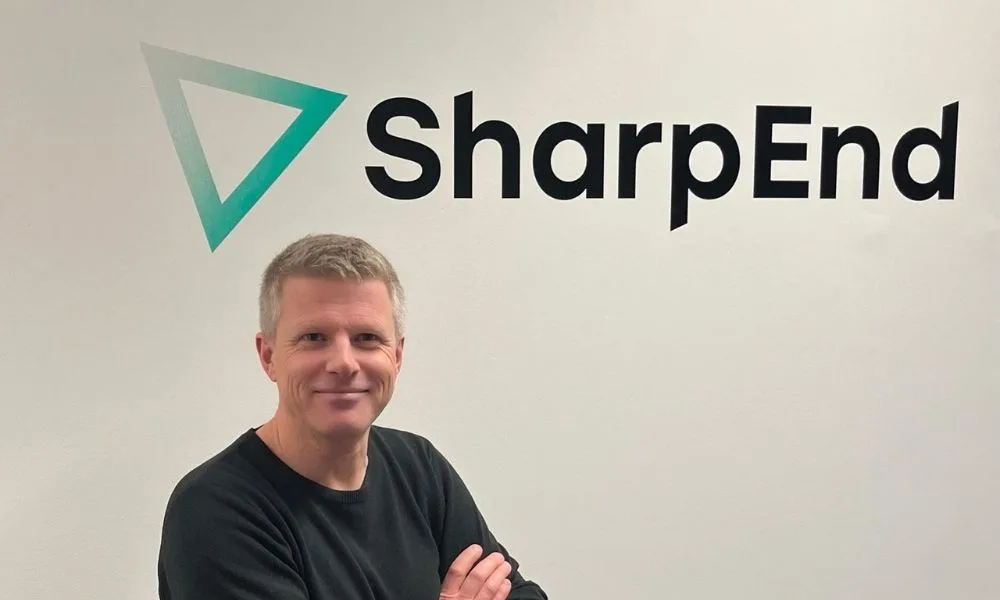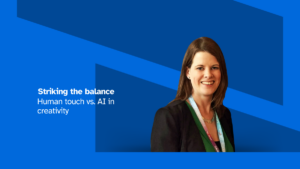By Greg Brooks, Founder of fractional marketing consultancy Hexagon Growth Marketing.
Currently working with Internet of Things company SharpEnd, Brooks is former Global CMO at WPP media agency Mindshare. He joined Mindshare in 2012, running the agency’s global marketing function covering 116 offices in 86 countries and leading the agency to numerous awards including most recently Cannes Media Network of the Year in 2019 and 2023 and WARC’s #1 Global Media Agency Network 2020, 2021 and 2022.
The rise of the fractional C Suite is upon us. The new way of working is to access leadership expertise, be it marketing, operations or technology – but ‘fractionally’ not on a full-time cost basis.
Just as we have all adopted a more flexible approach to our working locations in the last few years, the market now wants us to be flexible with our careers too. For those ready to embrace this fast-paced environment, it’s a real win-win for both the fractional executive and the companies seeking their expertise – giving both a new found agility.
Once upon a time, scale in the shape of physical offices, people and infrastructure, was a key advantage for companies offering marketing services – big was beautiful – and for some clients and services, it still is.
However, technology – from cloud to generative AI – has given birth to a new breed of agile companies leveraging the ‘platformisation’ of capabilities and the growing digital maturity in the market, to shake up the established order against a backdrop of increased economic pressure.
It’s created an evolving landscape, not unlike the one I used to cover as a journalist back at New Media Age in the 1990s dotcom boom, and it’s just as exciting. But while the technology that underpins much of the marketing industry becomes increasingly complex, the clear and focused way we need to communicate and package the benefits to clients must remain simple. So this new breed of companies need the same leadership expertise in core areas, the difference is they want to access it ‘fractionally’.
I’ve seen this change with my own eyes. I’ve spent the last decade winning awards and growing revenue with brilliant people as Global CMO at Mindshare. Big agency life has been exciting and there are amazing people everywhere you turn. It has been lots of fun, lots of learning and I’ve met some exceptional thinkers…but lots has also changed in that decade.
And that is only natural, because the nature of agencies is constant change. The job of an agency is to be ‘just’ ahead of your client, finding out what the next big thing is and helping them gain an advantage from it over the competition – in many ways, it is a form of outsourced innovation. For those of us who have been here since the start of the first digital ‘revolution’, this is nothing new and we can see the pattern clearly.
New services are created, often by independents and leveraging new technologies. When a digital service / skillset / offering reaches maturity, the market saturates as everyone fights for the client revenue attached. The result is an inevitable spiral of market forces, followed by consolidation. At the same time, there is a drive for new innovation, often powered by more technological progress.
Expansion, contraction. Up and down. Peaks and troughs. As one bit of the industry consolidates another bit fragments to show the new path and so on. The cycle of the specialist evolving (or being bought) to become generalist continues because marketing is such an exciting and dynamic industry that reinvents itself in constant cycles.
The skills you need to succeed in this constantly evolving environment are strength and efficiency and that’s what my own change is centred around. I’m taking my experience and applying it to the next generation of disruptive companies who are looking to scale their marketing and revenues and I’m offering it fractionally.
Take my client SharpEnd, an Internet of Things pioneer. It is changing the game in connected experiences – it is not just turning every product into an experience but turning the entire customer journey into one.
With the death of the cookie on the horizon (I know, nobody wants to hear more about cookies), a connected customer journey gives clients a new way to build first party data, which also gets them closer to their customers and in turn allows them to better manage their marketing expenditure. So it is a win-win-win.
It’s going to be an amazing growth journey, one that is going to take plenty of marketing strength and efficiency to succeed and I’m looking forward to being a fractional part of it.










